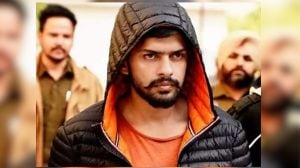Amartya takes day off to advocate education for all
NEW DELHI, Jan 2: Since he stepped on Indian soil, the country's first economics Nobel Laureate Amartya Sen has been feted by the Governm...

NEW DELHI, Jan 2: Since he stepped on Indian soil, the country’s first economics Nobel Laureate Amartya Sen has been feted by the Government. Today was no different. Among his many engagements, was a meeting with the President of India, K R Narayanan, and one with the Congress Party president, Sonia Gandhi. But neither kept Sen away from his favourite cause — education for all.
Twice in the day, he dropped in at the public hearing on elementary education. In the morning, he released the Public Report On Basic Education (PROBE) and used a section of the document to illustrate the point that it is not the lack of funds that is keeping the masses illiterate, “since poorer nations than India have found the funds”.
Sen said that public education schemes, in fact, aid the economy because of their labour-intensive nature. Clearly, the message was that if the Government wants to do more than offer lip service to their current favourite person, then this is the issue to act on. To reinforce his commitment, Senreturned in his now-familiar grey jacket to the hearing later in the afternoon. He wanted to sit with the crowd but the public response, rivalling one for a top film star, forced him onto the dias, which he was sharing with Education Secretary P R Dasgupta, advocate Kapila Hingorani and National Commission for Women member Sayeeda Hamid.
This session was for Dasgupta’s benefit, but the attention stayed with Sen, who for the most part seemed more pleased with the questions put to the bureaucrat, than his answers. A young boy from the audience asked Dasgupta, “How come the Government has money for a nuclear bomb, but none to educate its young citizens?” The answer was quick but disappointing, “That is a good question, but I did not pay for the bomb from the Education Department budget.”
Jean Dreze, Sen’s co-author and one of the moving forces behind PROBE, said the hearing aimed at spreading awareness about the importance of elementary education in the long-term. But now, they were hoping to extract acommitment from Dasgupta for redressal — on issues such as lack of schools, no admissions and poor facilities — within a specific time-frame. He was quick on offering commitment, but the time-frame was another matter. “It is difficult to set a time for issues that are dynamic,”he said. Claire Noronha, co-author of PROBE, asked, “When will Indians have the Fundamental Right to Education?” Dasgupta said: “It may not be constitutional, but the right had been ensured through the Supreme Court judgment in the Unnikrishnan case.”
The meeting threatened to break up when Sen rose to leave. But he was persuaded to make a speech. He agreed with both sides and said though the right to education was in place, it needed to be backed by a Constitutional Amendment. “Given the current political climate and the social structure, a Constitutional Amendment would prove useful,” said Sen. Later, he emphasised the role of the public and the media in raising awareness about the issue of education for all. “We live ina democracy and ultimately what we get is what we demand, and with what force,” said Sen. He was willing to put his force behind the cause, agreeing to present a copy of the PROBE report and a memorandum of the day’s proceedings to the President. But on one condition. “I have only one copy of PROBE and I don’t want to lose it. If someone will give me another copy, then I will share it with the President,” he said.





- 01
- 02
- 03
- 04
- 05


























